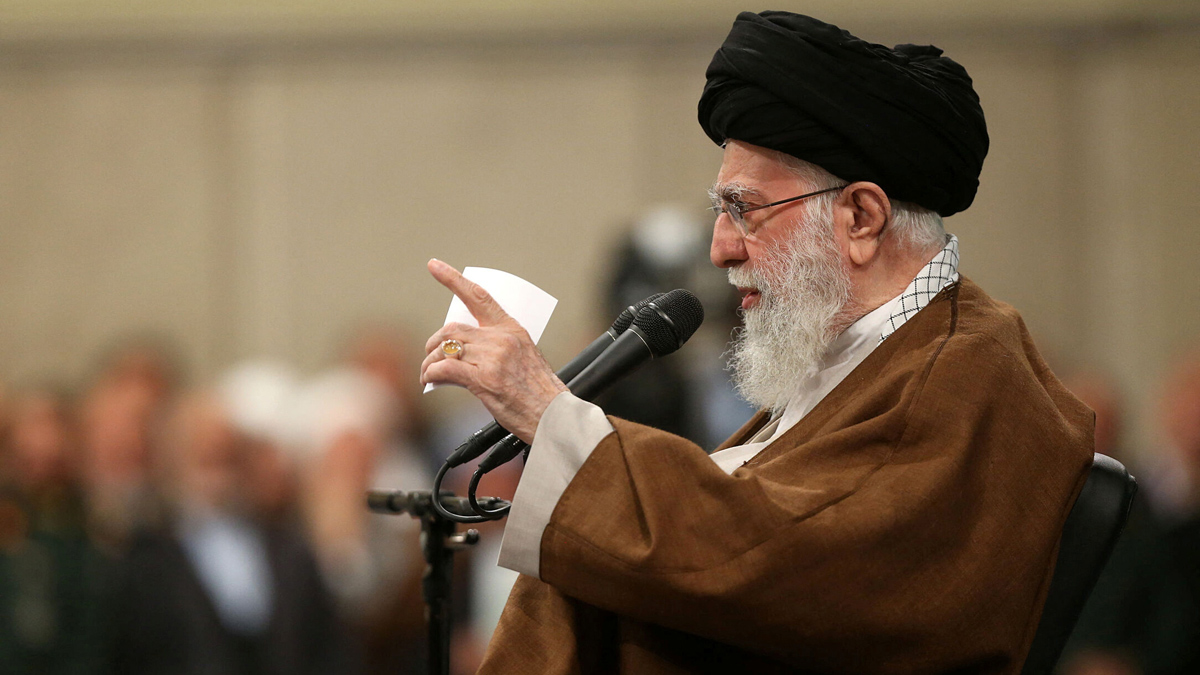Iran Supreme Leader possible succession: Who could rise to the challenge?

As the Israel-Iran conflict rages on for a sixth day, plunging the Middle East into a state of tumult, Israeli Prime Minister Benjamin Netanyahu's calls for the assassination of Tehran's Supreme Leader Ayatollah Ali Khamenei earlier this week raises questions of a possible succession in the cards.
Also, while the US has so far denied involvement in Israeli offensives that have so far eliminated more than 20 Iranian military commanders and nuclear scientists, Washington has also claimed to have knowledge of Tel Aviv's plans—with US President Donald Trump even claiming that he had vetoed Netanyahu's idea to kill Khamenei.
ALSO READ | Lonely Khamenei's mental state worsens? Iran's Supreme Leader may flee the country
Now, with Trump's overt threat, as well as Iran strongly responding to Israeli attacks and warning the US of 'irreparable damage' if it chose to interfere in the conflict, a question comes up: if the need arises, who could become Iran's new Supreme Leader?
Abolhassan Mahdavi, a temporary Friday prayer leader in Isfahan, revealed on November 15 last year that Iran’s Assembly of Experts had chosen three individuals as potential successors to Khamenei in order of priority, as per an Iran International report.
Mahdavi, who is a member of Iran’s Assembly of Experts, had not mentioned the names of these candidates, and it still remains confidential, as per the report. Here are five possible successors, who may or may not have been on that list:
Mojtaba Khamenei
The Supreme Leader's second son is no spring chicken: being deeply involved with the workings of the Islamic Revolutionary Guard Corps (IRGC) and the Republic's clergy, he plays a commanding role in Khamenei's office.
In 2021, he was even granted the title of 'Ayatollah', fulfilling the constitutional requirements for the role of Supreme Leader, which was crucial, since he was widely touted as Khamenei's successor when the latter had been reportedly suffering from ill health in 2024.
ALSO READ | Israel conflict: Why did Iran urge people to remove WhatsApp from their smartphones?
Alireza Arafi
A political aide with close ties to Khamenei, this official holds several key positions within the Assembly of Experts and the Guardian Council, and is also a prayer leader at a religious seminary in Qom, giving him influence over politicians as well as the clergy.
The conservative cleric, who has close ties with Khamenei's core ideology, has immense experience behind the political curtain, which makes him another highly probable candidate for the role of Supreme Leader.
Ayatollah Hashem Hosseini Bushehri
Another senior Iranian cleric occupying one of the topmost rungs of the Assembly of Experts—he serves as its First Deputy Chairman—Bushehri also meets the constitutional requirements for the role of Supreme Leader, having the title 'Ayatollah' in his name as well.
Another leader of the Qom seminary, his seniority, deep involvement in the country's politics and intelligence, and close ties with Khamenei’s inner circle make him a viable successor to Khamenei as well.
ALSO READ | Israel's 'Game of Thrones': Inside 'Operation Red Wedding' that killed 10 Iranian senior officials in 12 minutes
Ali Asghar Hejazi
A political security affairs official at Khamenei's office, Hejazi is known for his critical role in the administration overseeing Iranian intelligence, and is also often consulted on decisions pertaining to defence and strategy.
Reza Pahlavi
The exiled son of Mohammad Reza Shah Pahlavi is radically different from the others in the list, owing to his oft-expressed desire to (peacefully) change Iran from a theocratic leadership to a government based on human rights and popular sovereignty.
Calling Khamenei a “frightened rat” in an X post on Wednesday, he has urged Iran’s military, police, and state employees to rise up against the Khamenei administration, arguing that Khamenei's Islamic Republic was reaching its “irreversible” end.
Middle East